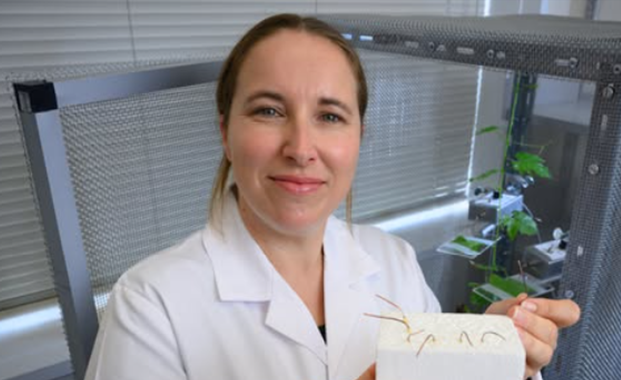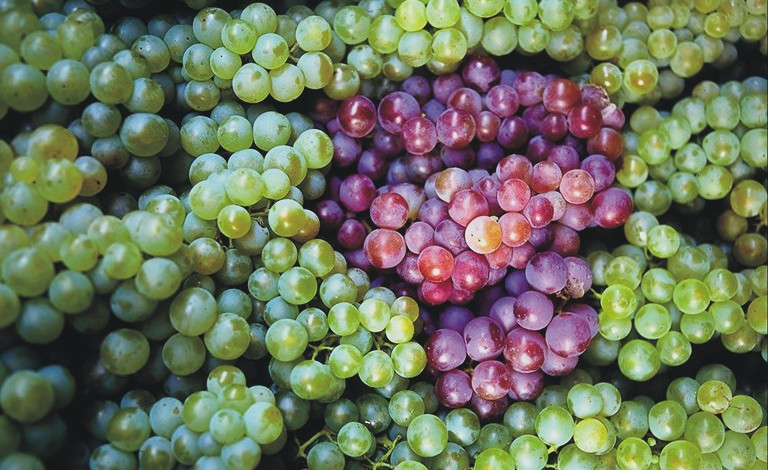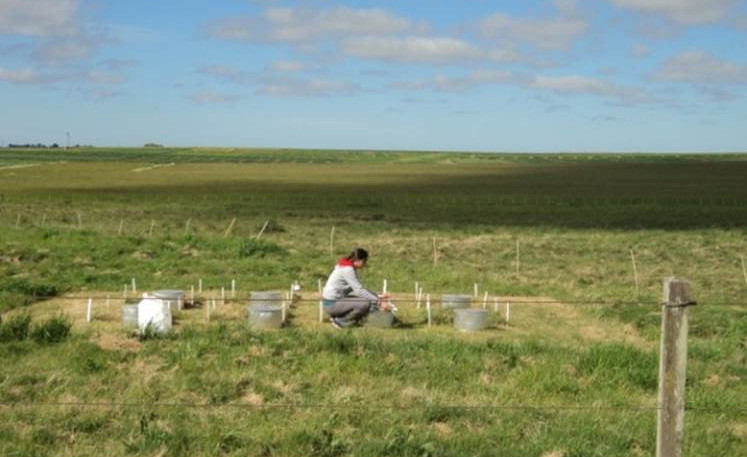A leader in challenging times: translating science into climate-ready farming systems
07 May 2025 | News
Dr Robyn Dynes, BAgrSc, PhD in Animal Nutrition, Science Impact Leader at AgResearch, 2025 Lincoln University Bledisloe Medal recipient
In a recent speech, Dr Robyn Dynes spoke of standing on the shoulders of many giants of New Zealand science, those renowned for their research and wisdom.
Now, young researchers look to Dr Dynes as a ‘giant’ herself, a scientist with a highly regarded career that has seen her build multidisciplinary, agriculture-focused research and adoption programmes that are both science and industry-leading.
“Much of my strategic work delivers research that makes an impact when integrated within a farming system and at the centre of farming systems are people. Currently, I’m working on a role in farmer engagement to help researchers have skills and knowledge to work more effectively with stakeholders,” says Dr Dynes.
Uniquely, Dr Dynes works across all three agricultural sectors – arable, dairy and sheep and beef. She is on the Foundation for Arable Research (FAR) Board, FAR’s Research and Development and Advisory group, Beef + Lamb New Zealand’s Northern South Island Farmer Council, and a member of the Southern Dairy Hub and Lincoln University Dairy Farm Research Advisory Committees.
“I sit at the table with farmers; this drives the relevance and passion for what I do. Over time, I’ve realised even more the importance of understanding what motivates farmers, and by doing so, I have been able to translate research into farming practices.
“Agriculture is important to New Zealand’s wellbeing - we have some of the safest food in the world, and if we are to flourish, our food and fibre industries need to be highly valued internationally. So, you’ll find me challenging industry and farmers. Are we thinking about the future and are we improving our farming practices? Can we demonstrate improvements to customers? Are we holding our social licence domestically by doing the right thing?”
Dr Dynes has worked at AgResearch for over 20 years. Her applied science work has investigated flock efficiency, pasture quality, climate adaptation and greenhouse gas emissions. Most recently, Dr Dynes led the highly significant Whitiwhiti Ora programme as part of the National Science Challenge – Our Land and Water looking at land use opportunities.
“One of the takeaways of this research was recognising that future land use decisions need to factor in much more than profit. We created a tool, freely available to rural professionals, to help them analyse land use. I’m really proud of this work and it allowed me to work with the most amazing people across universities, Crown Research Institutes and the private sector.”
Having grown up on a farm, Dr Dynes has decades-long experience in agriculture. Coupled with the networks she has created through her time studying at Lincoln University and beyond, she understands the challenges facing the primary sector now, how farming has evolved and how it may look in the future.
“Right now, as a nation, we should be very grateful for the continuing demand for our dairy products as this is underpinning our economy. We’re also seeing a change in demand globally with a commitment to a lower carbon future. We must meet these expectations. As a proud food-producing nation, New Zealanders need to be innovative and forward-thinking. Our social licence to farm domestically is increasing among non-agricultural stakeholders and this means we need to demonstrate that our footprint is reducing.
“Science and innovation are critical – we need to understand our footprint and what we can do about it while having our eyes on the horizon, so by the time our farmers get there, the solutions are available.”
Reflecting on farming in the ‘old days’ and comparing it to today, Dr Dynes acknowledges there has been much change, particularly in the technology available and the accuracy of the data it offers.
So, 2050 and beyond – what can we expect? Dr Dynes puts it simply: “If I were to be a food producer anywhere in the world at that time, I’d want to be in New Zealand.”
“If you look globally, New Zealand will be a climate winner. How will we take advantage of this opportunity? But also, how will we know we’ve reached a tipping point and need to change how we do things? Say, the date of calving or lambing or changing the types of genetics in our crops or livestock.
“We will likely grow more horticulture and arable crops in the future, though I believe we’ll still have some livestock which will need to be produced to a superior standard compared to anywhere else in the world for those products to be attractive globally.”
When considering the current challenges in the primary industry, Dr Dynes is quick to point out the critical role Lincoln University plays in discovering solutions through both blue skies research and applied science.
“Lincoln University needs to be a centre of wisdom and innovation. Until I graduated from Lincoln and started working, I didn’t realise how well my studies and the learning environment prepared me for my career. My research and those who taught me challenged me to think deeply and be knowledgeable so I could defend my science while being open to alternative views. Being taught by deeply passionate people was powerful for me.
“I hope Lincoln continues to support graduates who want to push the boundaries as in the next decade they will need greater specialisation, particularly around technology. We’re going to ask a lot of our graduates, who will need to know how to get the most out of farm systems while still having an understanding and empathy for the biological systems. It will be hard work but massively rewarding.”
For media enquiries, email: media@lincoln.ac.nz
Image credit: AgResearch


